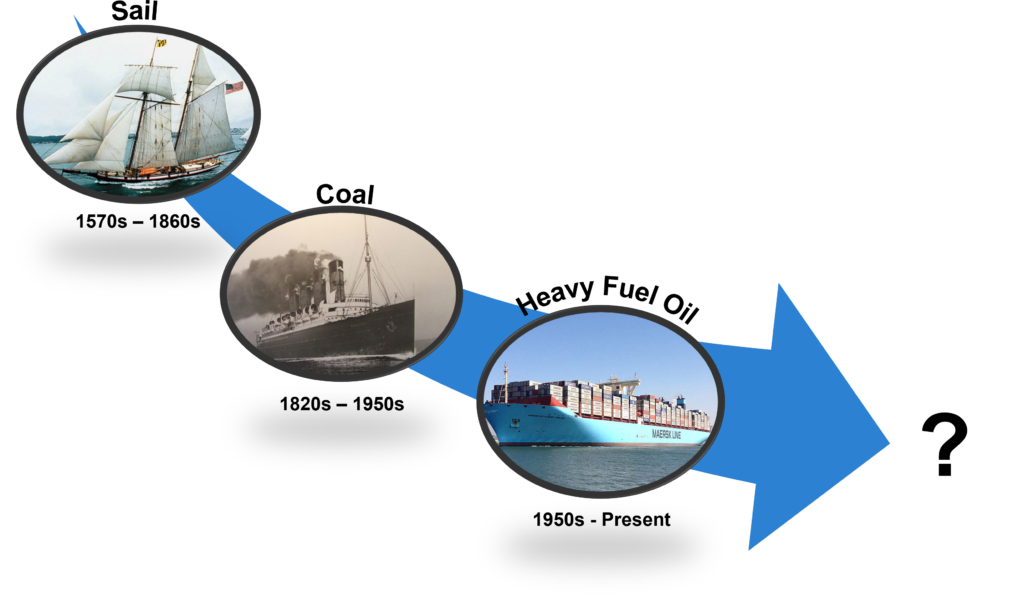Alternatives to traditional fossil fuels like heavy fuel oil and diesel that can reduce or even emit zero greenhouse gases
Since the 1950s, heavy fuel oil (HFO), also known as residual fuel oil or bunker c, has been the primary fuel for the very large diesel engines and marine boilers used in the commercial maritime industry. In 2018, it accounted for 79 percent of fuel consumption for international shipping according to the IMO’s Fourth GHG Study. Unfortunately, the combustion of HFO and other marine fossil fuels emits pollutants and greenhouse gases that are harmful to human health and the environment, including: carbon dioxide, methane, sulfur oxides, nitrogen oxides, black carbon, and fine particular matter. The emissions from combustion of this fuel for maritime activities results in nearly 3% of global greenhouse gases (GHG) emissions.
The maritime industry is at a critical juncture. It must rapidly reduce GHG emissions, which means replacing fuels like HFO and marine diesel oil (MDO) with alternatives that result in fewer, or no GHG emissions. Alternative fuels of interest to the maritime industry include certain types of biofuels, ammonia, methanol, hydrogen, and liquefied natural gas (LNG). One, or several, of these alternative fuels will replace HFO, but the future fuel mix is far from certain.
Commercial vessels are long-lived assets, typically lasting upwards of 30 years. Given this long operating life, vessel owners and operators are hesitant to commit to any one alternative fuel until they know that the fuel will be available and how much it will cost.
When considering emissions from alternative fuels, it is important to consider their full life-cycle emissions. This includes the emissions associated with each phase of the fuel’s life: feedstocks or materials, production and synthesis, transportation, storage, and then consumption. Such a holistic consideration is often referred to as well-to-wake (WtW). Sometimes fuel emissions are measured on a well-to-tank (WtT) or ‘tank-to-wake’ (TtW) basis which are subcomponents of well-to-wake. In math-speak:
WtT + TtW = WtW
Using a WtW assessment allows for a fair comparison across fuels.

Click the images below to learn more about each family of fuels and how they can help decarbonize maritime transport.
Thanks for subscribing to The Liquid Grid! You’ll receive email updates when new articles are posted.